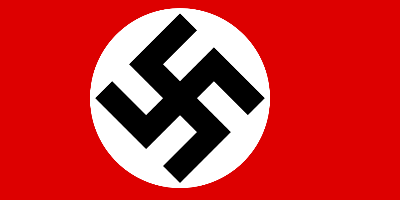19 apr 1939 anni - Turin Peace Conference
Descrizione:
After the Geneva Treaty, British, French and Yugoslav diplomats left Switzerland for Italy.They arrived by plane in Turin on the 18th of April.
Their staff weren't scared of Italy because they did little to no action during the conflict and their major battles were only in Yugoslavia and East Africa.
The peace treaty will take place in the Royal Palace of Turin.
Waiting to represent Italy was Benito Mussolini, Galeazzo Ciano, Giovanni Messe and their king Victor Emmanuel III.
The famed French Marshal Philippe Pétain, French foreign minister Paul Baudoin and Prime Minister Édouard Daladier will represent France.
The foreign secretary Kingsley Wood, Prime Minister Halifax and Secretary of War Sir John Anderson will represent the UK.
Prince Paul will be acting on behalf of Yugoslavia again with his diplomats and representatives.
Italy sets out their claims on France during the Armistice of Villa Incisa and a set of new demands for the treaty.
Their territorial demands to the Allies include;
1) The annexation of Yugoslav Dalmatia.
2) The annexation of the occupied areas surrounding Albania.
3) The annexation of the remainder of Yugoslav Carniola.
4) The annexation of Yugoslav Montenegro.
5) The annexations of the French border territories of Little St. Bernard Pass, Mont Cenis Plateau, Mont Thabor and Chaberton.
6) The annexation of the former County of Nice.
7) The annexation of the French island Corsica.
8) The annexation of the French colonies of Tunisia, the Aouzou Strip and French Somaliland.
9) The annexation of British Somaliland.
10) the annexation of Mandera county and the town of Moyale in the North-Eastern District of British Kenya.
Italy's non-territorial demands include;
11) Allied recognition of the Italian occupations of the Kingdom of Albania and the Abyssinian Empire.
12) The French naval bases of Toulon, Bizerte and Ajaccio in North Africa shall be demilitarised.
13) The French Navy be reduced.
Even though some of the demands had been accepted by the Allies, the others weren't.
France and the UK want to maintain Yugoslav independence. Their red lines with the demands are Dalmatia, Montenegro and Kosovo. Since the Allies had the upper hand in the peace talks, they denied these demands.
This refusal enraged Mussolini, but after hours of debating, both sides finally concluded with this new proposal to keep the Italians happy. The proposal was that Italy (since they were victors against Yugoslavia) was to keep Carniola and the territories surrounding the cities of Kotor and Sibenik.
But the port cities of Split, Dubrovnik and Makarska shall remain in Yugoslav hands. The islands of Šolta, Vis, Korčula, Lastovo, Mljet, Krk and Rab will be annexed to Italy proper.
The question for the south of Yugoslavia concluded too. The Allies decided Italy would only annex the territories around the cities and towns of Prizren, Gjakova, Ulcinj and Golubovci in southern Kosovo and Montenegro.
The situation in Montenegro was complex but finally solved. It was to be an independent kingdom with a Montenegrin Monarch, but the status of Montenegro was to be an Italian puppet state.
In return for Montenegro, The Allies want Italy to give $125,000,000 (in USD) to Yugoslavia and guarantee their independence for ten years as a compromise. Italy was frustrated with these demands they had to accept if they wanted peace with the Allies.
Prince Paul was uneasy about these proposals, but if he wished to maintain the independence of Yugoslavia, he had to agree with the border changes.
France, already bitter and humiliated by Germany, didn't wish to lose any more territory and were forced to agree with the annexations. The loss of their colonies and a major port city were hard for them to accept, but they had no choice. The annexations were minor, but that isn't what they worried about. They knew it would ruin their reputation more; they knew France would become a laughing stock.
The one thing they wouldn't accept is the demand for their navy. The Allies know Italy is a growing threat in the Mediterranean Sea, and they wish to contain them as much as possible. They refused to reduce the French fleet in the Mediterranean.
This was surprising for some of the Italian diplomats. But, if they wanted naval supremacy in the Mediterranean Sea, they must push these claims.
The Allies and the Italians had back-to-back arguments for the future of the navy. Italy won't give up their claims and the French responded by not backing down.
It seemed like a losing battle from both sides, but one proposal did pop up by the British.
The proposal was an interesting one. France will hand over a flagship to the Italians if, in return, Italy will drop their 12th demand and pay $5,000,000 (USD) for damages to French property.
Italy didn't like this proposal, but they are in a stalemate. They choose to accept it or continue to push their claims where they will get nowhere.
France believed this fair, as did the King of Italy and nearly all the diplomats (who respected France for its culture, military history and people).
Mussolini and a couple of his loyalists became the black sheep. They had to accept this or get removed from the conference room and have no more say in the treaty.
Mussolini gave in. He accepted.
The room was relieved.
The United Kingdom, on the other hand, wished to preserve their empire; for the sake of peace, they'll cede the British Somaliland Protectorate and some minor borderlands in Kenya to Italy in the hope that this would finally satisfy Italy.
Aggiunto al nastro di tempo:
Data:
19 apr 1939 anni
Adesso
~ 86 years ago
